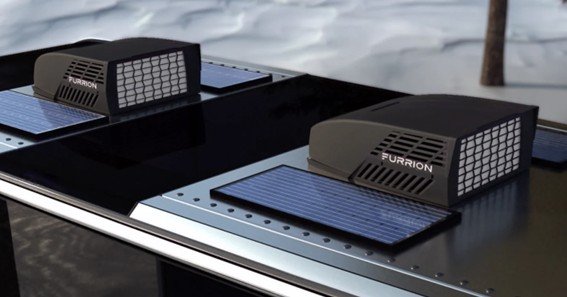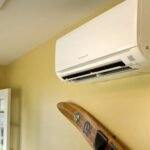If you’re planning to hit the road in 2025, choosing the best RV AC unit is essential for comfort during your travels. With advancements in technology, today’s RV air conditioners offer improved energy efficiency, quieter operation, and smart features. This guide will help you navigate the top options available, ensuring you stay cool wherever your journey takes you.
Top RV Air Conditioners of 2025
1. Coleman Mach 15+
The Coleman Mach 15+ stands out with its powerful 15,000 BTU cooling capacity and robust construction. It’s designed for larger RVs and hot climates, offering strong airflow and durability. However, its higher profile may create wind drag, and it requires a 5,000-watt generator for operation.
2. Dometic Penguin II
The Dometic Penguin II is known for its sleek, low-profile design, making it ideal for RVs where height clearance is a concern. Available in 13,500 and 15,000 BTU options, it offers efficient cooling and is compatible with both ducted and non-ducted systems. However, some users have noted that it can be noisy during operation.
3. RecPro RV Air Conditioner
RecPro offers a 13,500 BTU unit that boasts high energy efficiency with an EER of 10.0. It’s suitable for both ducted and non-ducted systems and is praised for its quiet operation. This unit is a great choice for those looking to save on energy costs without sacrificing performance.
4. Furrion Chill HE
The Furrion Chill HE series offers both 13,500 and 15,000 BTU models, featuring high energy efficiency and quiet operation. These units are designed to withstand tough conditions and are compatible with both manual and electronic controls. However, some users have reported issues with dual AC setups, leading to short cycling.
5. Nomadic Cooling X3
For those seeking off-grid capabilities, the Nomadic Cooling X3 is a 12V air conditioner offering 11,830 BTU of cooling power. It’s designed for energy efficiency and quiet operation, making it suitable for camper vans and RVs with solar setups. However, it comes at a higher price point and requires a robust electrical system.
FAQ
Q1: What BTU rating do I need for my RV air conditioner?
The required BTU rating depends on the size of your RV. Generally, 13,500 BTU units are suitable for RVs up to 30 feet, while 15,000 BTU units are better for larger RVs or hotter climates.
Q2: Are low-profile AC units less efficient?
Not necessarily. Low-profile units like the Dometic Penguin II offer efficient cooling while reducing wind resistance, which can improve fuel efficiency.
Q3: Can I run my RV AC unit on solar power?
Yes, but it depends on the AC unit’s power requirements and your solar setup’s capacity. Units like the Nomadic Cooling X3 are designed for off-grid use with solar power.
Q4: How important is the EER rating?
The Energy Efficiency Ratio (EER) indicates how efficiently an AC unit uses power. A higher EER means better energy efficiency, leading to lower operating costs.
Q5: Should I choose a ducted or non-ducted system?
Ducted systems distribute air through vents and are ideal for larger RVs with multiple rooms. Non-ducted systems blow air directly from the unit and are suitable for smaller RVs or open floor plans.
Selecting the best RV AC unit in 2025 involves considering your RV’s size, power setup, and cooling needs. Models like the Coleman Mach 15+ and Dometic Penguin II offer robust performance, while the RecPro and Furrion Chill HE provide energy-efficient options. For off-grid adventures, the Nomadic Cooling X3 stands out. Assess your specific requirements to choose the unit that ensures comfort throughout your travels.










